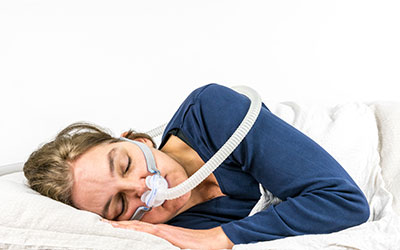Image Credit:
Image Credit:


Obstructive sleep apnea (also known as OSA) is the partial or complete obstruction of the upper airway, causing repetitive episodes of shallow or paused breathing during sleep. OSA is usually associated with a reduction in blood oxygen saturation and the episodes of decreased breathing (known as apneas) can last between 20-40 seconds.
Many sleep apnea sufferers are unaware that they even have these episodes. Below are a few common signs of OSA to keep an eye out for:
OSA has been frequently linked to bruxism and a high clench index. People with OSA are more likely to have bruxism and vice versa. Bruxism is a condition in which you clench, grind, or gnash your teeth subconsciously. While this can sometimes occur during the day, it’s most common during sleep. And like OSA, those with bruxism may not be aware they have it.
Below are some common symptoms of bruxism to be aware of:
Now that we know about the link between obstructive sleep apnea and bruxism, we can discuss how OSA has been known to damage dental implants (link to Dental Implants page). Because your dental implants function like your natural teeth, they can be damaged by bruxism in the same way that natural teeth are.
A study done by OSI Araba University Hospital in Vitoria, Spain indicated a strong link between OSA and dental implants. During the study, researchers examined how implant-borne prostheses are impacted by OSA. Of the 67 patients included in the study, 16 had complications and of these 16, 13 had obstructive sleep apnea. The complications to the dental implants included the following
The study showed that around 81% of people with OSA experienced one or more complications with their dental implants. Because the success rate of dental implants is between 92-97%, this suggests a strong correlation between obstructive sleep apnea and dental implant complications.
If you suspect that you’re suffering from obstructive sleep apnea, please make an appointment with your general practitioner as soon as possible. Not just for the success of your dental implants, but because it could become a matter of life and death.